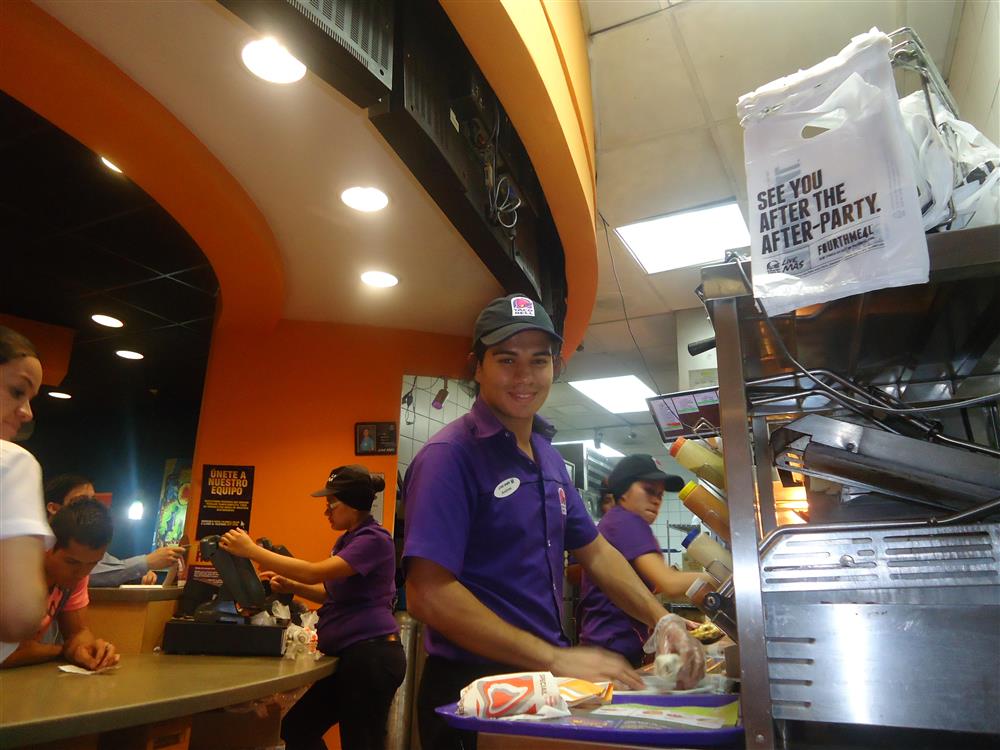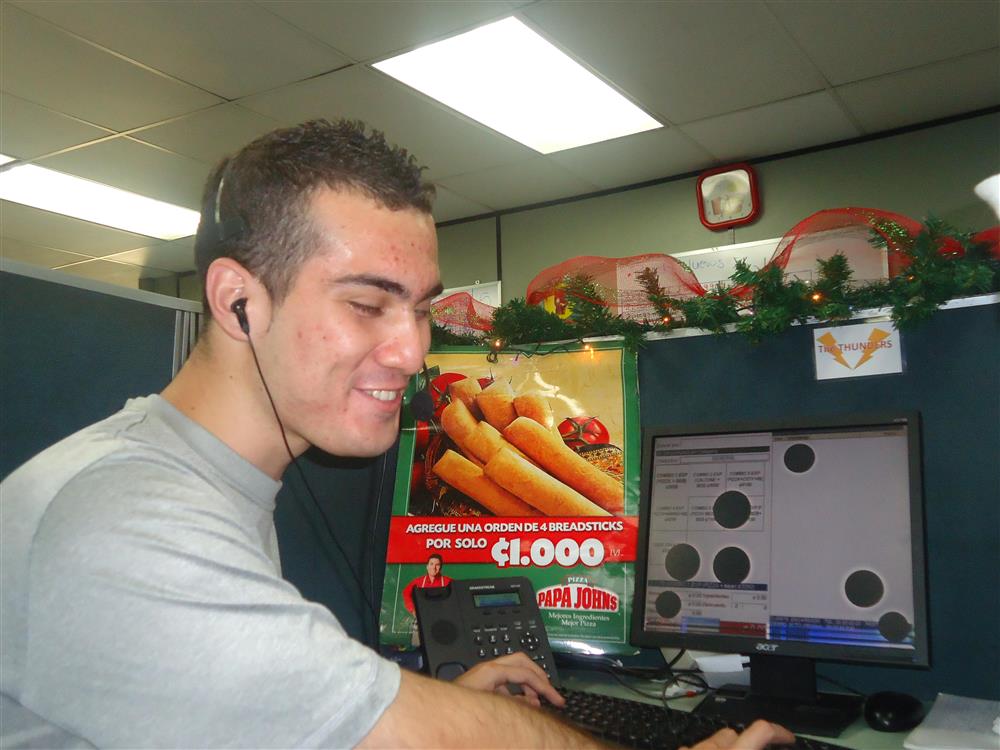Boosting the employability of Costa Ricans with disabilities
- Solution
- National Plan for Work Inclusion of People with Disabilities of 2012-2015, Ministry of Work and Social Security, Costa Rica
- Organization
- National Employment Directorate, Ministry of Work and Social Security in Costa Rica
- Country of Implementation
- Costa Rica
- Region
- Latin America & Caribbean
- Subregion
- Central America
- First published
- 31.01.2016

Solution details
People
“Inclusive companies that provide real opportunities, decent work, and development for people with disabilities provide an important contribution to the welfare and prosperity of our country.” Alfredo Hasbum Camacho, Vice Minister of Work and Social Security
Despite adopting the International Labour Organization (ILO) Convention on Vocational Rehabilitation and Employment of Disabled Persons (Act. 7219) in 1991, 63.7 percent of Costa Ricans with disabilities were still not working in 2010. Since the entry into force of the Law 7600 in 1996, the education and training of persons with disabilities has increased. However, limited training opportunities and an ill-adapted curriculum were identified as principal bottlenecks in 2012. To draft the Plan, the ‘MDG Acceleration Framework’ methodology was used, and four workshops and various interviews were held with representatives from organizations of persons with disabilities, government bodies, academia, non-governmental organizations, the business sector, and parts of the UN system (e.g., UN Development Programme and ILO). Costa Rica’s National Plan for Work Inclusion of People with Disabilities was adopted in 2012 to enable the acceleration of work inclusion of persons with disabilities by eliminating the most serious bottlenecks identified. It has five major objectives: boosting the employability profile of people with disabilities; increasing workplace demand; strengthening job intermediation services; encouraging development of enterprises by people with disabilities; and promoting institutional synergies and coordination of actions.
Problems Targeted
Costa Rica’s National Plan for Work Inclusion of People with Disabilities comprises various measures to increase access to the open labour market for persons with disabilities countrywide. These include training, targeted employment services, and job intermediation. Initiated in 2012, the Plan has produced positive, quantifiable results.
Solution, Innovation and Impact
Costa Rica’s National Plan for Work Inclusion of People with Disabilities of 2012–2015 is a national non-legally-binding policy, overseen by the Ministry for Work and Social Security. The Plan’s measures include, foremost, boosting the employability of people with disabilities through managing educational and training processes aimed at developing the basic skills necessary for their participation in the labour market. The Plan also aims to increase the workplace demand of people with disabilities through the involvement of inclusive employers; to strengthen job intermediation services through the creation of tools and networks; to encourage the development of enterprises through managing services that offer technical consultancy, skills training, and credit; and to promote institutional synergies and coordination of actions. The Plan provides for a precise schedule and resource matrix for its implementation. Coordination & monitoring The Plan deals with such structural problems as the lack of coordination and monitoring by establishing an Inter-institutional Technical Committee on Employability for People with Disabilities, which oversees the Plan’s general management, as well as Coordinating Committees for each priority area._x000D_ Piloting programmes The Plan encourages model programmes such as the creation of job placement networks for persons with disabilities at the local level and an entrepreneurship programme to encourage the development of enterprises by persons with intellectual and psychosocial disabilities. 549 persons with disabilities have developed an income-generating activity. 1,653 young people with disabilities have improved their employability. Companies affiliated with the Network of Inclusive Business hired a total of 421 persons with disabilities from 2012 to 2015. A governance structure of five committees was established for implementing the Plan.
Funding, Outlook and Transferability
When it comes to the work inclusion of persons with disabilities, Costa Rica's National Plan tackles the most important bottlenecks. Its measures can be easily adopted by, and transferred to, other countries. The cost of implementation, divided by years, is rather low in comparison to its impact on the labour market situation.
Media
Life Story

THE STORY OF JOSE
“Now I feel useful!”
This is my first job! I feel very happy because they have accepted me as I am. Prior to becoming a Loan Officer at BAC Credomatic I had been searching for work for many years, but no company would give me the opportunity to show my full potential because of my disability. My family has always been supportive, but life has not been shiny all the time. A few years ago I had to leave my university studies because I did not have enough money to cover the expenses. I felt very frustrated, but I never gave up. One day I applied for a job in a company that opened its doors to many unemployed persons with disabilities like me. Since that day my life has changed a lot. Thanks to this opportunity, I was able to finalize my university degree in Accounting and to have sufficient economic stability to help my mother with the household expenses. Now I feel useful. Now I realize that I can manage many administrative tasks and can take on additional responsibilities because I have acquired new knowledge in the banking area. Now I see a future that before I never imagined. I see myself growing into new positions in the company, having new opportunities, and learning more every day. I hope my story can inspire more companies to believe in the potential of people with disabilities.
Related information
- Connections
- 2
-
Organization
- People